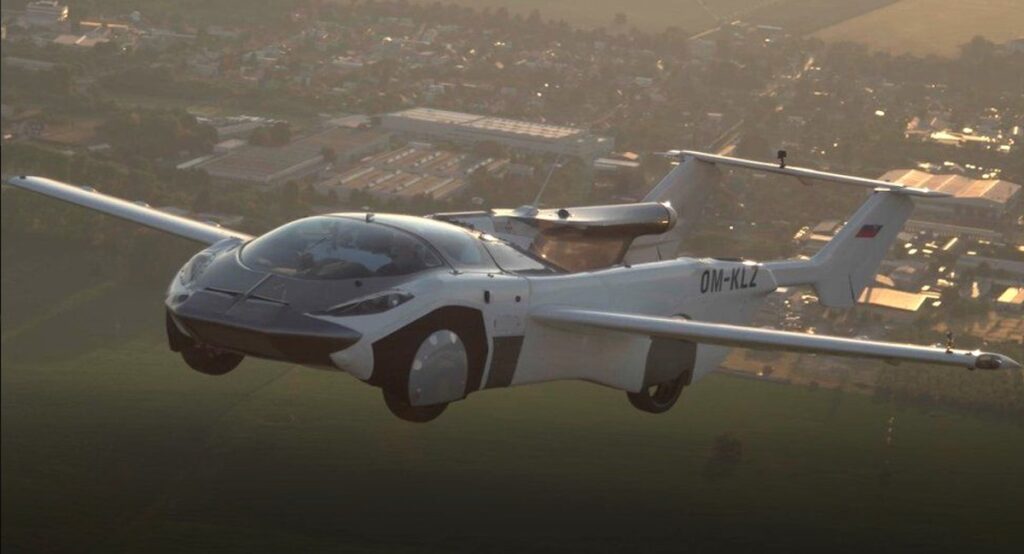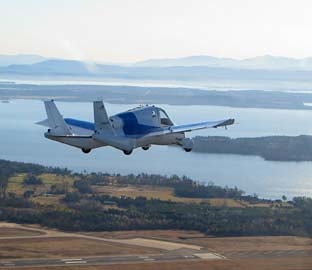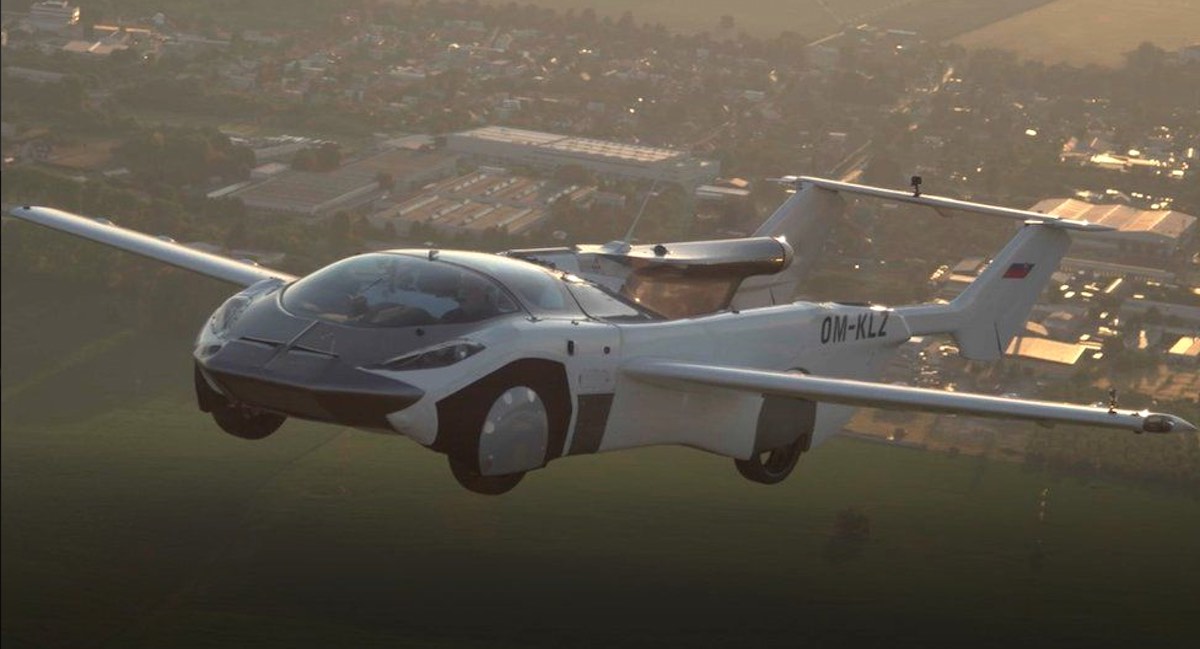Let the bells ring out in every direction from Toledo to Tokyo. Flying cars—the vision of transportation from science-fiction writers—may finally be landing in the modern world.

In a test flight, a Slovakian pilot drove what appeared to be an exotic sports car up a runway in the city of Nitra.
It then took flight with the aid of a fixed propeller, and landed 35 minutes later at Bratislava, before folding up the wings and driving straight out onto the highway.
The aptly-named AirCar (prototype 1) was developed by a company called KleinVision, founded by Stefan Klein, who spent 20 years turning his dream into a reality. For an unbelievably small amount of money—about 2 million euro—the Slovak created the world’s first flying car to travel between two airports.
During the maiden flight, AirCar was able to reach a cruising speed of 105 mph (170 kph) at an altitude of 8,200 feet (2,500 meters.) Fuel economy would allow it to maintain this trajectory for 600 miles (1,000 kilometers).
Once the flying portion of its journey is over, a push of the button causes a Transformer-like sequence that in under three minutes leaves the vehicle as a slightly-oversized, perfectly road-legal sports car with a 160 horsepower gas-powered BMW engine, a seat for another passenger, and a convertible roof.
WATCH the video…
In order to be certified to fly under modern regulations, planes or helicopters must be safe to fly for many years, without having an incident.
“I have to admit that (the AirCar) looks really cool—but I’ve got a hundred questions about certification,” Dr. Stephen Wright, a research fellow of avionics at the Univ. of West England, told the BBC. “I can’t wait to see the piece of paper that says this is safe to fly and safe to sell.”
One company did get certified for a flying car this year. Terrafugia, founded in 2006 by five MIT engineering grads, first flew its flying car, the Transition, at a New York airport in Plattsburgh in 2012. Featuring its own parachute and a flight range of around 480 miles, Terrafugia took deposits on pre-orders for 100 vehicles, retailing for around a quarter million dollars each.

After years of product delays and refunding of customers’ deposits, Terrafugia was bought in 2017 by a Chinese company. But, in January they announced that the Transition had finally received a Special Light-Sport Aircraft (LSA) airworthiness certificate from the U.S. Federal Aviation Administration.
The problem is, that flying car cannot be driven, because it has not proven its road-worthiness through various crash tests. By February 2021, Terrafugia had laid off most of their employees and said it would close down operations in Massachusetts, with the intention of moving to China.
At least they proved it is possible to receive FAA certification in the U.S.
Klein Vision has specified that they are looking to take a share out of the aircraft market with the AirCar, not the auto market—and Morgan Stanley estimates the flying car market over the next 20 years will be worth over a trillion dollars, similar to the buzz that arose around the recent boom in private spaceflight.

Klein Vision is looking to upgrade their prototype engine with more power, allowing it a top cruising speed of 186 miles per hour, while other companies like Hyundai, Toyota, and VW are looking into flying cars of their own.
FLY This Cool Video to Your Friends By Landing it on Social Media…





















Many more details needed to take this seriously … where is Tesla ??